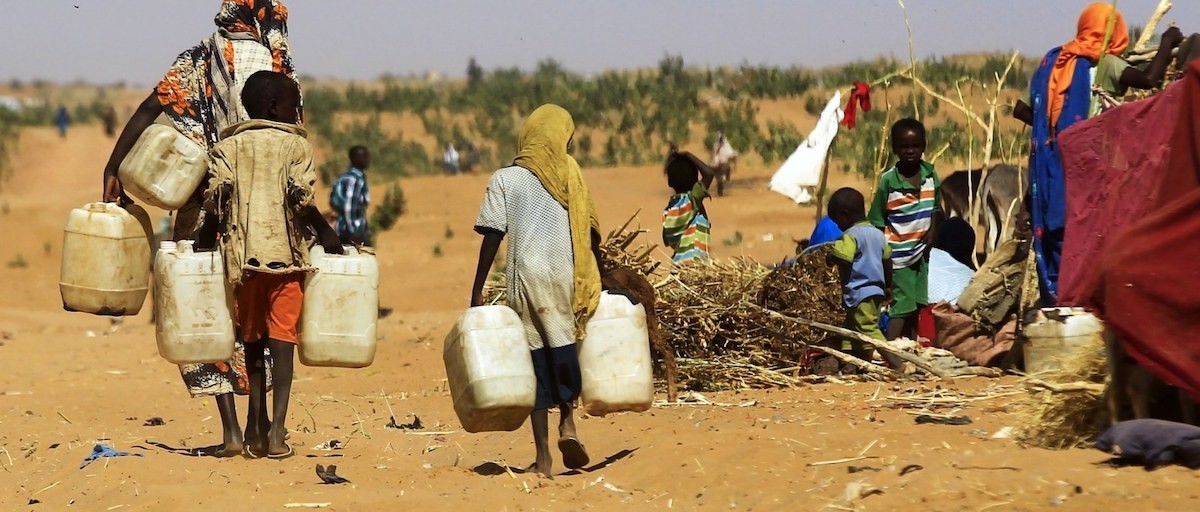Source: https://acetforafrica.org
In November, the UN Climate Change Conference will return to Africa offering us an opportunity to use our collective power to secure a great deal for the continent. The Glasgow Climate Pact signed at COP26 failed to deliver on many critical issues for Africa, but it also offered several opportunities to work toward an African-owned, African-focused COP27 in 2022 in Egypt.
Why does this matter? African countries contribute a mere 4% to global emissions, but bear the brunt of their impacts.
Climate change is impeding Africa’s long-term sustainable development and poses an immediate threat to its people, creating conflict and destroying lives and livelihoods from the shores of Senegal to the savannah of Kenya.
It is critical for countries to join forces to push for bold commitments globally, regionally, and locally to help combat the worst impacts of climate change and create space for African innovation and development.
At COP26 African countries united and spoke as one on a number of issues through the African Group of Negotiators and at the Africa Pavilion. This shared voice translated into a collective power that contributed to many of the qualified wins coming out of Glasgow.
Three COP26 outcomes is of particular importance for African countries and should be the focus of advocacy and policy efforts leading up to COP27.
Increased climate funding, with a reaffirmation at COP26 of the pledge of $100bn in climate funding for developing countries and a commitment to double adaptation funding to $40bn; clearer rules around carbon markets; and heightened attention to loss and damage. Building on these achievements, African countries should insist on the following priorities leading up to COP27:
To take advantage of increased climate financing, African countries must first build capacity and effectively deploy resources to make sure that money flows to climate innovations, climate-smart agriculture, green and blue ecosystems, and renewable energy. Adopting gender-smart climate finance that empowers women to lead on climate action and strengthens their resilience to climate impacts is essential to the effective deployment of these resources. Finally, there also needs to be closer scrutiny of funds, to make sure they are spent as promised.
The $1.5bn pledge at COP26 by developed countries to finance the protection and maintenance of the Congo Basin between 2021-25 represents an increased recognition of the shared benefits of global public goods in Africa and their crucial role in mitigating climate change. It also demonstrates that carbon markets have enormous potential for the continent. Currently, Africa only accounts for 2% of trading in the global market – with South Africa and North Africa getting the bulk of the Clean Development Mechanism funding under the Kyoto Protocol. To take advantage of this opportunity, most African countries will need to strengthen their regulatory and policy environments to take advantage of carbon markets and ensure people understand how offset trading can benefit their communities. Countries also need to do the hard work of understanding just how much carbon they have within their borders – which can be costly and time-consuming – and ensure that communities benefit from offset projects.
The loss and damage debate has been contentious for years. COP26 opened the door for commitments in this area, but African countries and communities that are being ravaged by climate change right now need more than words. For those facing climate-induced droughts, floods, and extreme heat today, a commitment to keep global warming below 1.5C degrees or a call to cut emissions is too little, too late. They need help to recover from catastrophes and to build forward differently and better. This will require large investments. The costs of minimizing and redressing loss and damage in developing countries are estimated to rise from $50 billion in 2022 to between $300 and $428 billion by 2030, and as much as $1.67 trillion by 2050[1]. Countries must work together and develop ambitious asks around loss and damage as a central focal point of COP27.
The stories of the people who are most impacted must be at the front and center of these discussions.
African countries have no time to waste. Our work starts today to ensure we truly own the agenda at COP27 and push for bold climate action for Africa and the rest of the world.
Let’s use our collective voice and power to make COP27 a story of results and outcomes, not just promises, for Africa.
Source: https://acetforafrica.org/research-and-analysis/insights-ideas/articles/the-road-to-cop27-in-africa-three-priorities-for-action/








